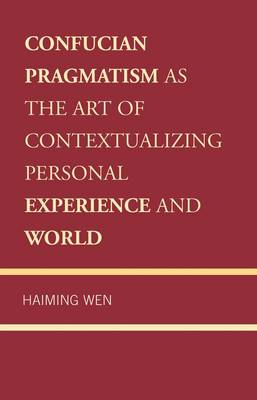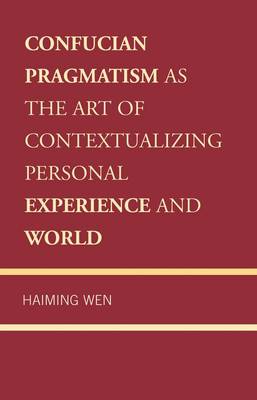
- Afhalen na 1 uur in een winkel met voorraad
- Gratis thuislevering in België vanaf € 30
- Ruim aanbod met 7 miljoen producten
- Afhalen na 1 uur in een winkel met voorraad
- Gratis thuislevering in België vanaf € 30
- Ruim aanbod met 7 miljoen producten
Zoeken
Confucian Pragmatism as the Art of Contextualizing Personal Experience and World
Haiming Wen
Hardcover | Engels
€ 252,45
+ 504 punten
Omschrijving
This engaging work of comparative philosophy puts the Chinese and American philosophical traditions into a mutually informative and transformative philosophical dialogue on the way to developing a new form of Confucian pragmatism.
Specificaties
Betrokkenen
- Auteur(s):
- Uitgeverij:
Inhoud
- Aantal bladzijden:
- 430
- Taal:
- Engels
Eigenschappen
- Productcode (EAN):
- 9780739136447
- Verschijningsdatum:
- 1/04/2009
- Uitvoering:
- Hardcover
- Formaat:
- Genaaid
- Afmetingen:
- 152 mm x 229 mm
- Gewicht:
- 689 g

Alleen bij Standaard Boekhandel
+ 504 punten op je klantenkaart van Standaard Boekhandel
Beoordelingen
We publiceren alleen reviews die voldoen aan de voorwaarden voor reviews. Bekijk onze voorwaarden voor reviews.








